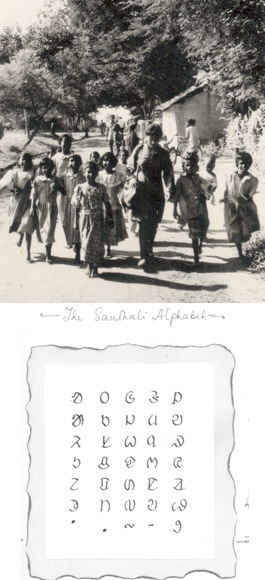Debleena
For Debleena, literacy was never about possessing language, and she resists the idea that it is her identity, but she sees different languages as different worlds, or different ways to describe the world, like painting experience in different types of paint. They are indeed resources. Debleena connects this view of language directly to her multicultural experience in the cosmopolitan city of Calcutta, and we, as readers, understand that this view of literacy is not one that she could have arrived at in any other location.
In this narrative, then, Debleena positions herself in a thirdspace where a multiplicity of perspectives and languages combines to construct her literate world. She hints here at an element of insecurity about her identity in this liminal space, as she asks, “How shall I say that I feel I shall not be an educated Indian unless I go back and reside among my roots, after a long sojourn in foreign lands?” She sees her experiences as different, and indeed foreign, to many of her Western audience, and while she claims this multicultural, translingual space for herself, it is a contested, ever-changing space. The Calcutta book fair, which played such a central role in her literacy experience, has now moved and transformed itself into a different event/space, for example, and her own connections to the many languages of India have become less palpable during her time in the United States. From Debleena’s narrative, then, we see literacy as influenced by its materiality—the specific time and place of the city of Calcutta and of her childhood home—as well as by the many languages she heard and absorbed as she was growing up.


